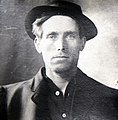
Introduction

- In trade unions, workers campaign for higher wages, better working conditions and fair treatment from their employers, and through the implementation of labour laws, from their governments. They do this through collective bargaining, sectoral bargaining, and when needed, strike action. In some countries, co-determination gives representatives of workers seats on the board of directors of their employers.
- Political parties representing the interests of workers campaign for labour rights, social security and the welfare state. They are usually called a labour party (in English-speaking countries), a social democratic party (in Germanic countries), a socialist party (in Romance countries), or sometimes a workers' party.
- Though historically less prominent, the cooperative movement campaigns to replace capitalist ownership of the economy with worker cooperatives, consumer cooperatives, and other types of cooperative ownership. This is related to the concept of economic democracy.
The labour movement developed as a response to capitalism and the Industrial Revolution of the late 18th and early 19th centuries, at about the same time as socialism. The early goals of the movement were the right to unionise, the right to vote, democracy and the 40-hour week. As these were achieved in many of the advanced economies of western Europe and north America in the early decades of the 20th century, the labour movement expanded to issues of welfare and social insurance, wealth distribution and income distribution, public services like health care and education, social housing and common ownership. ( Full article...)
Selected article
Labour economics, or labor economics, seeks to understand the functioning and dynamics of the markets for wage labour. Labour is a commodity that is supplied by labourers, usually in exchange for a wage paid by demanding firms. Because these labourers exist as parts of a social, institutional, or political system, labour economics must also account for social, cultural and political variables.
Labour markets or job markets function through the interaction of workers and employers. Labour economics looks at the suppliers of labour services (workers) and the demanders of labour services (employers), and attempts to understand the resulting pattern of wages, employment, and income. These patterns exist because each individual in the market is presumed to make rational choices based on the information that they know regarding wage, desire to provide labour, and desire for leisure. Labour markets are normally geographically bounded, but the rise of the internet has brought about a 'planetary labour market' in some sectors.
Labour is a measure of the work done by human beings. It is conventionally contrasted with other factors of production, such as land and capital. Some theories focus on human capital, or entrepreneurship, (which refers to the skills that workers possess and not necessarily the actual work that they produce). Labour is unique to study because it is a special type of good that cannot be separated from the owner (i.e. the work cannot be separated from the person who does it). A labour market is also different from other markets in that workers are the suppliers and firms are the demanders. ( Full article...)April in Labor History
Significant dates in labour history.
- April 01 - Burston Strike School began in 1914 the U.K.; the 1972 Major League Baseball strike began in the U.S. and Canada; the 1980 New York City transit strike began; the U.S. Supreme Court decided NLRB v. Truck Drivers Local 449; the Federation of Unions of South Africa was founded; the Allied Pilots Association was founded; the Loray Mill strike began in the U.S. in 1929; Sol Chick Chaikin died
- April 02 - Weldon Mathis was born; Eugene Hanley was born; the 1994–95 Major League Baseball strike ended in 1995
- April 03 - Percy Wells died
- April 04 - The On-to-Ottawa Trek began in Canada in 1935; William Quesse was born; the 2006 Minor League Baseball umpire strike began in the U.S.
- April 06 - Rose Schneiderman was born; the 1905 Chicago Teamsters' strike began as the Teamsters engaged in a sympathy strike; B. T. Ranadive died
- April 07 - The U.S. Supreme Court decided Lochner v. New York; Basawon Singh (Sinha) died
- April 08 - The 1998 Australian waterfront dispute began
- April 09 - John H. Dent died; the U.S. Supreme Court decided Adkins v. Children's Hospital and Bunting v. Oregon; Chris Watson was born; President Harry S. Truman nationalizes all steel mills in anticipation of the 1952 steel strike; Natascha Engel was born; Thomas Jackson was born
- April 10 - Harold J. Gibbons was born; Dolores Huerta was born; Joseph Diescho was born; George Lippard was born; Edward J. Carlough was born; Lee Batchelor was born; Anna Walentynowicz died
- April 11 - The 1980 New York City transit strike ended
- April 12 - Tom Addison was born; the U.S. Supreme Court decided NLRB v. Jones & Laughlin Steel Corp.; the Auto-Lite strike began in 1934 in the U.S.; the Union Label Department, AFL–CIO was founded; the Memphis sanitation strike ended; the Queensland Council of Unions was founded; the Sons of Vulcan was founded
- April 13 - Henk Sneevliet died; the Laborers' International Union of North America was founded
- April 14 - Dorothy Jacobs Bellanca was born; Marvin Miller was born; Ernest Bevin died
- April 15 - A. Philip Randolph was born; Pablo Manlapit died; the American Federation of Teachers was founded; " Black Friday" occurred in 1921 in the U.K.; Aleksei Gastev died; the Trade Unions Forum was founded; Margaretta Scott was born
- April 16 - Joseph Havelock Wilson died
- April 17 - Manwel Dimech died
- April 18 - Joseph Labadie was born; R. J. Thomas died
- April 20 - Gro Harlem Brundtland was born; The Ludlow Massacre occurred in 1914 in the U.S.; the International Harvester strike of 1979–80 ended
- April 21 - The Bituminous coal miners' strike of 1894 began in the U.S.; the First Employment Contract is repealed in France in 2006
- April 22 - Frederick Nicholas Zihlman died
- April 23 - Russell Crowell was born; the Canadian Labour Congress was formed; Cesar Chavez died; the Hock Lee bus riots occurred in 1955 in Singapore; Edward Lamb was born
- April 25 - Arnold Miller was born
- April 26 - United Trade Union Centre (Lanin Sarani) was founded
- April 28 - Workers' Memorial Day; Roy Lee Williams died; Bob White was born; Greg Combet was born; Jerry Horan died; Joseph Glimco died
- April 29 - The Coeur d'Alene miners' dispute of 1899 occurred in the U.S.
More Did you know (auto-generated)
- ... that Marco van Basten's strike in the UEFA Euro 1988 Final was described as "perhaps the most iconic goal in UEFA European Championship history"?
- ... that a 1994 lightning strike in Egypt led to 469 deaths after oil tanks were ignited and flooded the village of Dronka with burning fuel?
- ... that in 1977, Appalachian folk singer Phyllis Boyens performed at a Christmas benefit concert to support Kentucky coal miners who had been on strike for 17 months?
- ... that the 2016 Jim Beam strike was the first labor strike in the company's history?
- ... that M. Farooqui, who had been expelled from his studies for having organized a strike in 1940, received his Delhi University degree in a special convocation in 1989?
- ... that John Sterling, Anthony Harrison and Chuck Compton were all signed by the Green Bay Packers as replacement players because of a players' strike during the 1987 NFL season?
Related Portals
Selected image
Selected Quote
If I could have wished another life, I would have loved to be a pioneer woman in the beginning of the labor movement."
|
— Astrid Lindgren, author, Pippi Longstocking |
Did you know
- ...that while the first union was founded in 1927,
Tanzania did not have a significant
labor movement until the 1940s?
- ...that while the first union was founded in 1927,
Tanzania did not have a significant
labor movement until the 1940s?
- ...that the first company union in the United States was created by John D. Rockefeller, Jr., in response to the bad publicity generated by the Ludlow Massacre?
Topics
Get involved
Associated Wikimedia
The following Wikimedia Foundation sister projects provide more on this subject:
-
Commons
Free media repository -
Wikibooks
Free textbooks and manuals -
Wikidata
Free knowledge base -
Wikinews
Free-content news -
Wikiquote
Collection of quotations -
Wikisource
Free-content library -
Wikiversity
Free learning tools -
Wiktionary
Dictionary and thesaurus















































































